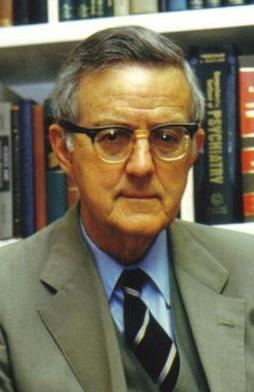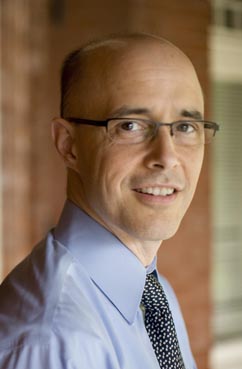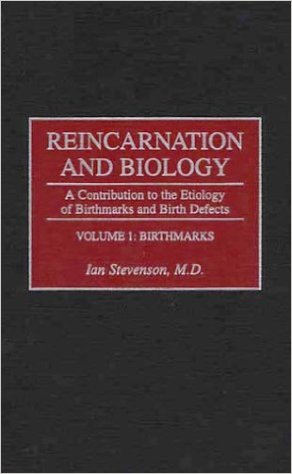
Karma is an ancient Indian concept that refers to an action, work, or deed, and its effect or consequences. In Indian religions, the term more specifically refers to a principle of cause and effect, often descriptively called the principle of karma, wherein individuals' intent and actions (cause) influence their future (effect): Good intent and good deeds contribute to good karma and happier rebirths, while bad intent and bad deeds contribute to bad karma and worse rebirths. In some scriptures, however, there is no link between rebirth and karma. Karma is often misunderstood as fate, destiny, or predetermination.
Parapsychology is a field of research that studies a number of ostensible paranormal phenomena, including telepathy, precognition, clairvoyance, psychokinesis, near-death experiences, reincarnation, and apparitional experiences.

Reincarnation, also known as rebirth or transmigration, is the philosophical or religious concept that the non-physical essence of a living being begins a new life in a different physical form or body after biological death. In most beliefs involving reincarnation, the soul of a human being is immortal and does not disperse after the physical body has perished. Upon death, the soul merely becomes transmigrated into a newborn baby or an animal to continue its immortality. The term transmigration means the passing of a soul from one body to another after death.

Ian Pretyman Stevenson was a Canadian-born American psychiatrist, the founder and director of the Division of Perceptual Studies at the University of Virginia School of Medicine. He was a professor at the University of Virginia School of Medicine for fifty years. He was chair of their department of psychiatry from 1957 to 1967, Carlson Professor of Psychiatry from 1967 to 2001, and Research Professor of Psychiatry from 2002 until his death in 2007.
Rebirth in Buddhism refers to the teaching that the actions of a sentient being lead to a new existence after death, in an endless cycle called saṃsāra. This cycle is considered to be dukkha, unsatisfactory and painful. The cycle stops only if Nirvana (liberation) is achieved by insight and the extinguishing of craving. Rebirth is one of the foundational doctrines of Buddhism, along with karma and Nirvana. Rebirth was a key teaching of early Buddhism along with the doctrine of karma. In Early Buddhist Sources, the Buddha claims to have knowledge of his many past lives. Rebirth and other concepts of the afterlife have been interpreted in different ways by different Buddhist traditions.
Near-death studies is a field of psychology and psychiatry that studies the physiology, phenomenology and after-effects of the near-death experience (NDE). The field was originally associated with a distinct group of North American researchers that followed up on the initial work of Raymond Moody, and who later established the International Association for Near-Death Studies (IANDS) and the Journal of Near-Death Studies. Since then the field has expanded, and now includes contributions from a wide range of researchers and commentators worldwide. Research on near-death experiences is mainly limited to the disciplines of medicine, psychology and psychiatry.

Twenty Cases Suggestive of Reincarnation is a 1966 book written by psychiatrist Ian Stevenson on claims of spontaneous recall of information about previous lives by young children. The book focuses on twenty cases investigated by the author. It has been translated into seven foreign languages.
Paul Edwards was an Austrian-American moral philosopher. He was the editor-in-chief of MacMillan's eight-volume Encyclopedia of Philosophy from 1967, and lectured at New York University, Brooklyn College and the New School for Social Research from the 1960s to the 1990s.
Past life regression (PLR), Past life therapy (PLT), regression or memory regression is a method that uses hypnosis to recover what practitioners believe are memories of past lives or incarnations. The practice is widely considered discredited and unscientific by medical practitioners, and experts generally regard claims of recovered memories of past lives as fantasies or delusions or a type of confabulation. Past-life regression is typically undertaken either in pursuit of a spiritual experience, or in a psychotherapeutic setting. Most advocates loosely adhere to beliefs about reincarnation, though religious traditions that incorporate reincarnation generally do not include the idea of repressed memories of past lives.
Jenny Cockell is an English podiatrist who in the mid-1990s came to fame for writing about her claims of reincarnation.
Erlendur Haraldsson was a professor emeritus of psychology on the faculty of social science at the University of Iceland. He published in various psychology and psychiatry journals. In addition, he published parapsychology books and authored a number of papers for parapsychology journals.

Jim B. Tucker is a child psychiatrist and Bonner-Lowry Professor of Psychiatry and Neurobehavioral Sciences at the University of Virginia School of Medicine. His main research interests are documenting stories of children who he claims remember previous lives, and natal and prenatal memories. He is the author of Life Before Life: A Scientific Investigation of Children’s Memories of Previous Lives, which presents an overview of over four decades of reincarnation research at the Division of Perceptual Studies. Tucker worked for several years on this research with Ian Stevenson before taking over upon Stevenson's retirement in 2002.

Old Souls: The Scientific Search for Proof of Past Lives is a non-fiction book by journalist Tom Shroder. An editor at The Washington Post, Shroder traveled extensively with psychiatrist Ian Stevenson of the University of Virginia, who conducted past life and reincarnation research in Lebanon, India and the American South. Shroder's journalistic experience makes this book a valuable review of an often disparaged subject.
Criticism of Buddhism has taken numerous different forms, including philosophical and rational criticisms, but also criticism of praxis, such as that its practitioners act in ways contrary to Buddhist principles or that those principles systemically marginalize women. There are many sources of criticism, both ancient and modern, stemming from other religions, the non-religious, and other Buddhists.

Michael Tye is a British philosopher who is currently the Dallas TACA Centennial Professor in Liberal Arts at the University of Texas at Austin. He has made significant contributions to the philosophy of mind.

Where Reincarnation and Biology Intersect is a 1997 book by psychiatrist Ian Stevenson, published by Praeger. The book is about birthmarks and birth defects ostensibly associated with reincarnation. Where Reincarnation and Biology Intersect is written for the general reader and is a condensation of a two-part monograph Reincarnation and Biology: A Contribution to the Etiology of Birthmarks and Birth Defects.

Reincarnation and Biology: A Contribution to the Etiology of Birthmarks and Birth Defects is a 1997 two-part monograph written by psychiatrist Ian Stevenson and published by Praeger. Where Reincarnation and Biology Intersect is a condensation of the two books written for the general reader.

European Cases of the Reincarnation Type is a 2003 book by psychiatrist Ian Stevenson, who conducted research into claims of reincarnation. The work focuses on different reincarnation research case studies in a Western setting. It was Stevenson's last book before he died in 2007.
Robert F. Almeder is Professor Emeritus of Philosophy at Georgia State University. He is known in particular for his work on the philosophy of science, and has also written on the philosophy of mind, epistemology and ethics. He is the author of 24 books, including The Philosophy of Charles S. Peirce (1980), Death and Personal Survival (1992), Harmless Naturalism: The Limits of Science and the Nature of Philosophy (1998), Human Happiness and Morality (2000), and Truth and Skepticism (2010).

Shanti Devi, known as Lugdi Devi in her alleged past life, was an Indian woman who claimed to remember her previous life and became the subject of reincarnation research. A commission set up by the Indian political leader Mahatma Gandhi supported her claim, while another report by researcher Bal Chand Nahata disputed it. Subsequently, several other researchers interviewed her, and published articles and books about her.











